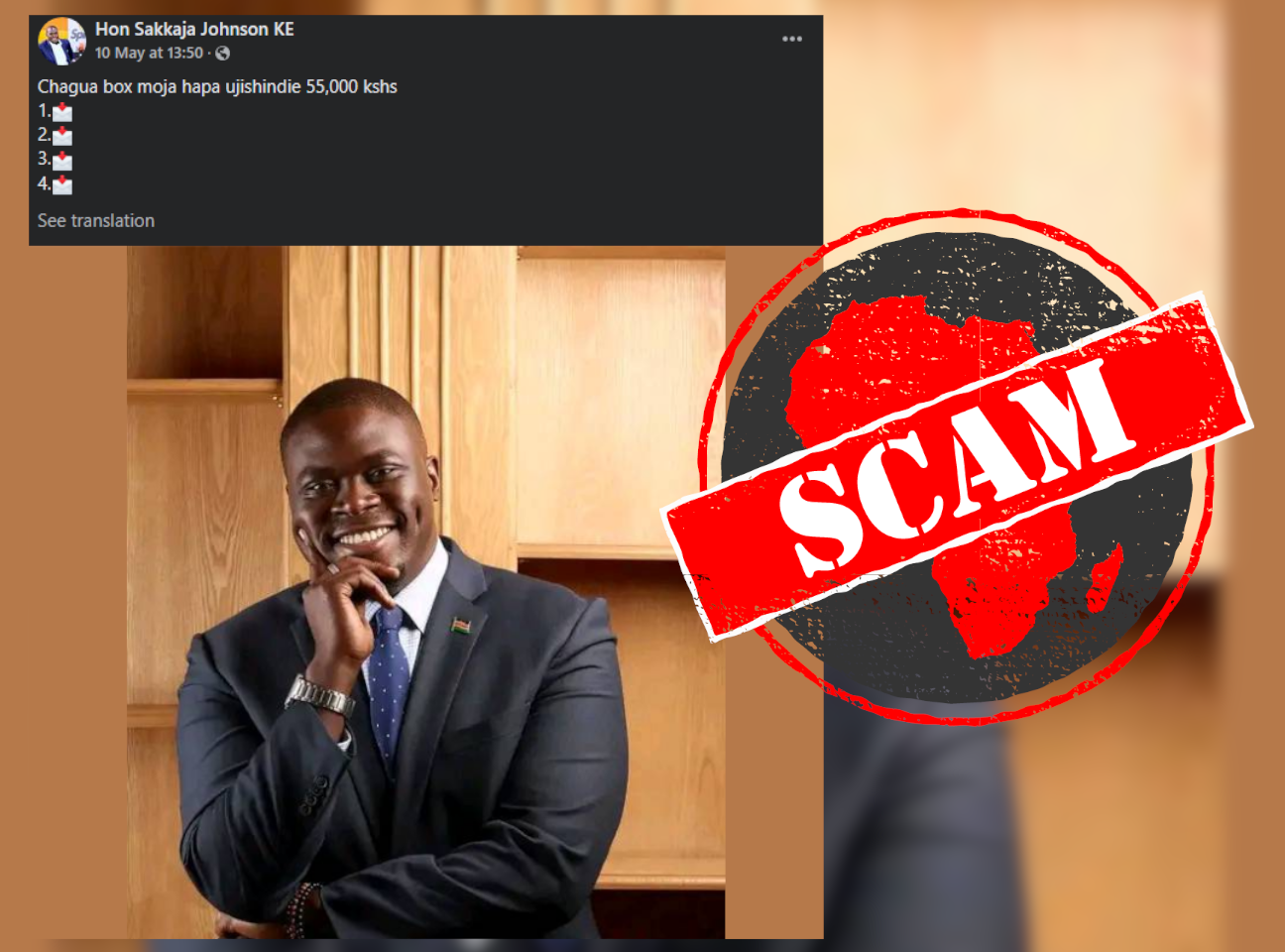IN SHORT: It is unlikely that a public official of the Nairobi governor’s stature would run promotions offering cash prizes on his official social media accounts. Johnson Sakaja has only one verified account on Facebook – and this isn’t it.
The Facebook account Hon Sakkaja Johnson KE has been running promotions in a group in Kenya with more than 148,000 members.
The account’s profile picture shows Johnson Sakaja, the governor of Nairobi county, which includes Kenya's capital.
One of its posts, published 10 May 2023, reads: “Chagua box moja hapa ujishindie 55,000 kshs.” It then shows four download or email emojis, numbered one to four.
This loosely translates to: “Choose one box here and win KSh55,000.”
The account has posted various offers promising gifts and money.
But is this Facebook account really run by Sakaja? We checked.

Facebook account is a scam
There is little activity on the timeline of the Facebook account, which shows profile picture updates with photos of Sakaja and another young man whom we could not identify.
Also on the timeline are group posts promising various gifts to Kenyans who engage with the posts.
In one post, a Facebook user who commented on the post was asked to send a direct message via Facebook or WhatsApp to a listed phone number.
We WhatsApped the number and were asked to provide personal details, such as our full name, MPesa mobile money number, age and county of residence, to stand a chance to win KSh35,000.
According to the message, the promotion was sponsored by Inooro TV, a Kikuyu language television station with a wide reach, and the “Kenya Communication Council”.
But the message raised a red flag – there’s no such council.
We were asked to pay a registration fee of KSh1,000. Then we were sent what appeared to be screenshots of testimonials from previous winners. Being asked to pay a registration fee was another clear sign that this was a scam.
Sakaja’s official Facebook page is verified and contains no promotions.
Instead, Sakaja’s posts show his whereabouts, daily engagements and ongoing projects in the county.
Fake accounts of prominent people are regularly created on social media platforms with the aim of scamming people. Those who run them often request personal details or money, which could lead to identity theft. You can report these accounts to protect yourself and others from scams.
Republish our content for free
For publishers: what to do if your post is rated false
A fact-checker has rated your Facebook or Instagram post as “false”, “altered”, “partly false” or “missing context”. This could have serious consequences. What do you do?
Click on our guide for the steps you should follow.
Publishers guideAfrica Check teams up with Facebook
Africa Check is a partner in Meta's third-party fact-checking programme to help stop the spread of false information on social media.
The content we rate as “false” will be downgraded on Facebook and Instagram. This means fewer people will see it.
You can also help identify false information on Facebook. This guide explains how.




Add new comment